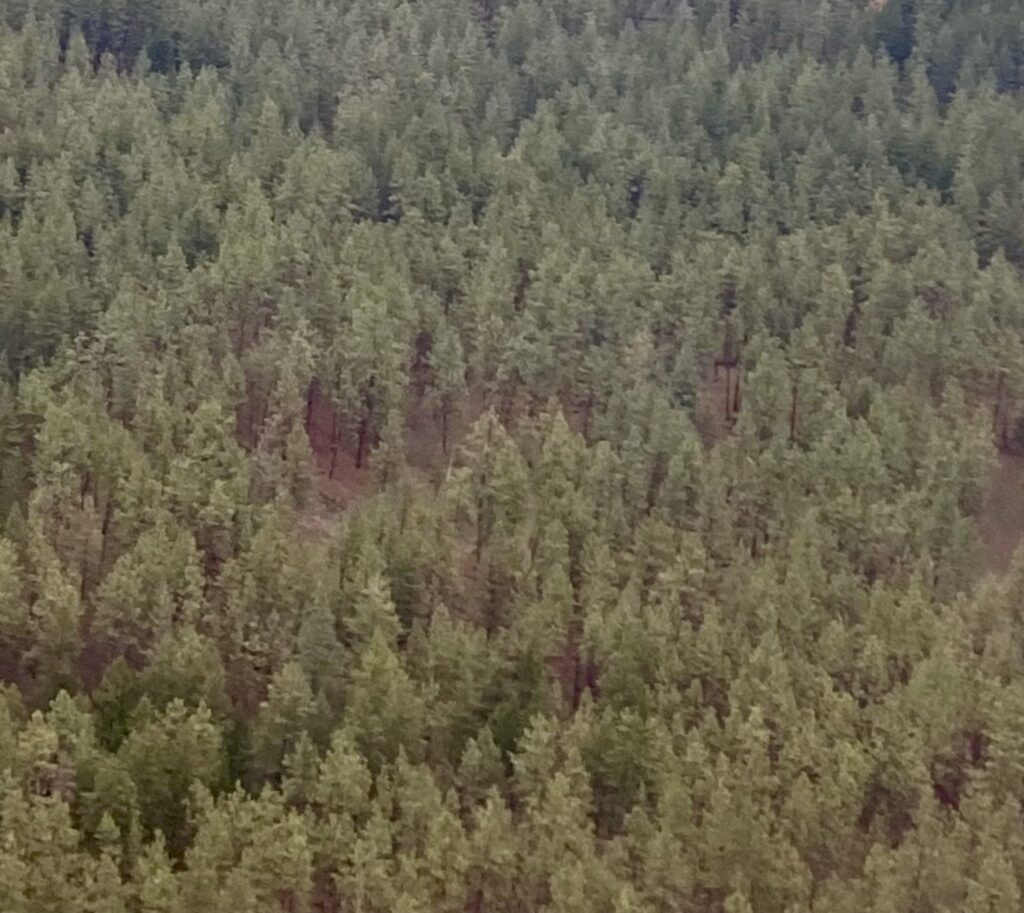
Industry News
News
First Nation challenging Metis rights in court
April 4, 2024 By Darlene Wroe, Local Journalism Initiative Reporter
 Photo: Annex Business Media.
Photo: Annex Business Media.Temagami-area First Nations communities say they will continue their court action to have the Ontario Métis Harvesting Agreement declared illegal with respect to their homeland, N’dakimenan.
The Teme-Augama Anishnabai (TAA) and Temagami First Nation (TFN) chiefs and councils have been advised that the Ontario Ministry of Natural Resources and Forestry has sent a letter to Marc Descoteaux requesting the removal of a cabin at Pond Lake, which is within the area claimed by the TAA and TFN.
Descoteaux is a member of the Métis Nation of Ontario (MNO) and made an application to the ministry for approval under MNO rights to construct the cabin. However, in recent months the MNO concluded that the MNO as a whole did not approve the construction of the structure as an incidental cabin for the use of all community members. After receiving that notice, the ministry has requested Descoteaux to remove the cabin and restore the site by June 1, 2024.
(The Speaker reached out to Descoteaux for comment but did not receive a response.)
The TAA and TFN are amending their Statement of Claim to remove Descoteaux from a court action claim.
“While our objective to have the nuisance cabin removed is met, the larger issue of the Ontario Métis Harvesting Agreement remains,” said TFN Chief Shelly Moore-Frappier in a press release.
Tied to the land
“We have inherent rights to N’dakimenan because of our 7,000-year history here,” she said.
“Our identity is tied to this specific place. The Métis do not have that connection. Further, we have naturalized any mixed-blood people as our citizens. It is our inherent right to decide who our people are. We are the only Indigenous people and the only rights-holders in N’dakimenan.”
“There were never Métis people here nor was there ever a Métis community in N’dakimenan,” added TAA Ogimaa (Chief) Michael Paul.
“I will defend our rights against anyone who wants to interfere or take those rights away. That means we have to continue our fight against the Métis Harvesting Agreement.”
MNO defends agreement
MNO President Margaret Froh stated in a telephone interview that the MNO has placed a moratorium on all incidental cabins because a formal policy has not been developed around it.
“Any cabin we would recognize as an incidental cabin would have to meet those requirements for a very clear communal use,” she said.
Regarding the harvesting agreement with Ontario, she stated that the MNO has been working 30 years to assert Métis rights in Ontario through the courts, and through negotiations with the government.
Froh said that the MNO undertook a review of the MNO harvester card registry with an independent review “which made it very clear that our harvesting card registry is solid and as such we were in a position to negotiate that harvesting framework agreement which we absolutely stand behind.”
In the press release, Aanike Ogimaa (TAA Second Chief) John Turner stated that he finds it “highly questionable that the MNO is putting a moratorium on occupation of land by way of incidental cabins while they maintain that the proposed federal Bill C-53 is not about land. The whole Métis Nation of Ontario organization is questionable. We have newly created ‘historic Métis communities’ and a whole new category of people basing their Métis identity on a distant ‘non-status Indian ancestor.'”
In the telephone interview, Froh defended the existence of Métis people.
“Temagami can’t wave a magic wand and take the Métis out of someone,” she said.
“It’s up to the individuals that are descendants of those historic Métis communities.” If they choose to identify as Métis, or if they choose to identify with the TAA, “that is to be fully respected.”
Froh said work has been done to identify seven Métis communities that have existed in Ontario since the late 1700s and early 1800s.
She said that Métis today “are recognized as having the ability to harvest within the territory that their ancestors were on. It is not about having TFN or TAA ancestry. It is about having distinct Métis ancestry.”
“Colonial legislation”
She said she hears the TAA and TFN arguments about the unfairness of the position they are in, and concerns that Métis rights seem to be stronger. She stated that the MNO “abhor” the Indian Act. “We believe it is a piece of colonial legislation.”
She said First Nations should be encouraged to pursue self-government.
“We have seen now more than 25 First Nation communities within this country have done that.”
She added that the MNO believes “self-government is the only way to solve those problems of unfairness and inequality that are inherent in the Indian Act,” adding “we would applaud any First Nation that wants to seek and pursue that recognition of self-government. We will stand with them and not try to tear them down.”
Darlene Wroe is a Local Journalism Initiative reporter for Temiskaming Speaker.
Print this page